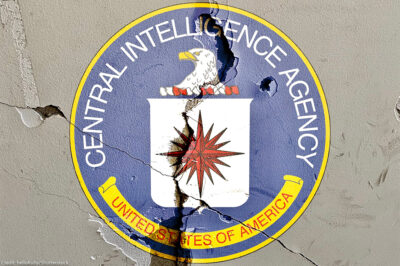What to make of this? Mr. Padilla, convicted on all counts, guilty of murder conspiracy and two other charges, based almost exclusively on a grainy reproduction of an alleged “application form” filled out in an attempt to attend an al Qaeda training camp in 2000.Some, like Professor Stephen Vladeck at the University of Miami Law School, contend that the civilian verdict is unfortunate because it represents the Bush administration’s habit of using jurisdictional legerdemain to avoid court review of its unilateral executive detention.In this case, Vladeck rightly notes, the transfer of Padilla from military detention (in which he was held for more than three years without charge, trial or access to counsel) to a federal court kept the constitutionality of his initial military detention immune from review by the Supreme Court, which telegraphed a willingness, in the Hamdi decision, to grant Mr. Padilla some relief.Others, however, also correctly opine that the very success of the prosecution shows the lack of any need for procedures outside the normal criminal justice framework to prosecute terrorists. Padilla’s conviction is proof, they say, that our system works and any attempt to create some new parallel, executive system—as we have at Gitmo—is unnecessary and misguided.
“This demonstrates, at least for now, that the United States is fully capable of prosecuting terrorism while affording defendants the full procedural protections of the Constitution,†said Michael Greenberger, who served in the Clinton administration Justice Department and teaches terrorism law at the University of Maryland law school.
Both are right, I guess, but both miss a larger point. Let’s examine, in plain English, what happened in America, land of the free and home of the brave.In 2001, in a telecast from Moscow, Attorney General John Ashcroft announced a key arrest in the “war on terrorism”: a potential bomber named Jose Padilla who allegedly had been returned to his home country to plant a radiological or “dirty” bomb, possibly in the Washington Metro system (my transport of choice).Shortly thereafter, Mr. Padilla was transferred to military custody, where he languished until 2005. Then, after the Supreme Court ruled against the government in the Hamdi case, which had similar facts, the government moved Padilla to the civilian court system. The Supreme Court, which had dismissed Padilla’s challenge on technical grounds, was thus forestalled from ruling on the legality of his executive detention just days before it was supposed to rehear the case after Padilla’s technical deficiency had been fixed.Then, this man went to trial in federal court in Miami. In an unusual move, the main charge against him, conspiracy to commit murder, identified no specific target, nor any real concrete move to implement the alleged plan. Nonetheless, a jury in Miami, a jury of ordinary men and women, all of whom were bombarded constantly by the prosecution with reminders of the terrible events of 9/11, and who, by judicial order, were barred from hearing about his military detention, found the man guilty. His odyssey will end with him in civilian jail, possibly until he is a senior citizen.On the facade of 60 Center St. in New York, the main Manhattan civil court house, there is an inscription: “The true administration of justice is the firmest pillar of good government.”In the context of the Padilla case, the most important precedent is not justice denied or an effective terrorism prosecution in civilian court. Rather, it’s the failure of “true justice,” at least in the sense of justice without the appearance of illegitimacy. True justice means the rules of the game do not shift in the middle of play. That’s exactly what happened in the Padilla case and, guilty or not, his conviction will stand in perpetuity for that, more than anything else.


